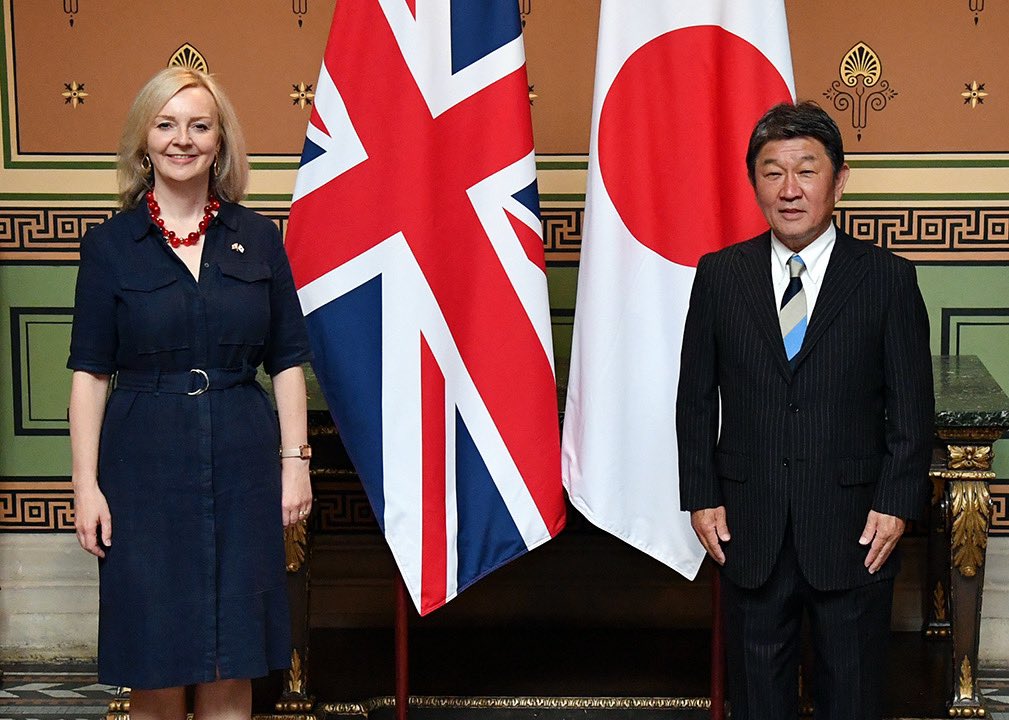
- ARAB NEWS
- 11 Jul 2025

LONDON: The Japanese and British governments on August 7 reached an effective agreement in their negotiations on an economic partnership agreement for free trade, aiming to put the bilateral deal into effect at the beginning of 2021.
The effective accord was made through talks held from Thursday between visiting Japanese Foreign Minister Toshimitsu Motegi and British International Trade Secretary Elizabeth Truss.
At a press conference after the two-day negotiations, Motegi said that the two sides effectively agreed on most items in the envisaged trade deal and came to share the recognition on key issues.
Japan and Britain intend to reach a broad agreement by the end of this month and put the trade deal into force on Jan. 1, 2021. Motegi stopped short of going into details about Friday’s effective agreement.
Preferential tariff measures applied for trade between Japan and Britain under the Japan-European Union EPA are set to expire at the end of this year following Britain’s exit from the EU. But confusion in corporate activities will likely be avoided if the Japan-Britain trade deal goes into effect at the start of next year.
If Japan and Britain fail to reach a new trade deal, Britain’s tariff rate on Japanese automobiles would rise to 10 percent from the current 7.5 percent.
Truss said on Twitter on Friday that the two countries “reached consensus on major elements” of the deal, including ambitious provisions in digital transactions and financial services that “go significantly beyond” the Japan-EU EPA.
The two countries agreed to aim for reaching a formal agreement in principle by the end of this month, she added.
After the first-day talks, Motegi told reporters that the two sides made progress, noting that they discussed market access issues, such as tariff rates.
Japan and Britain kicked off their trade talks in June at the working level, using the Japan-EU EPA, which took effect in February 2019, as a basis for their discussions.
Under the existing pact, The EU’s tariffs on Japanese vehicles are set to be scrapped in 2026.
In the bilateral negotiations, Japan called on Britain to eliminate its tariffs on Japanese automobiles before 2026, while Britain is believed to have sought the liberalization of Japan’s markets for beef and cheese.
Japan’s ruling coalition and farm lobbies are strongly opposed to liberalizing the country’s dairy and livestock markets.
According to trade data from the Japanese Finance Ministry, Japan’s exports to and imports from Britain totaled 1,513.2 billion yen and 887.5 billion yen, respectively, in 2019.
Japan mainly exports automobiles, auto parts and prime movers to Britain while importing vehicles and pharmaceutical products from the European country. For Japan, Britain is the second-largest export destination in Europe, after Germany.
In trade with Britain, Japan has been earning an annual surplus worth hundreds of billions of yen for over 10 years.
JIJI Press